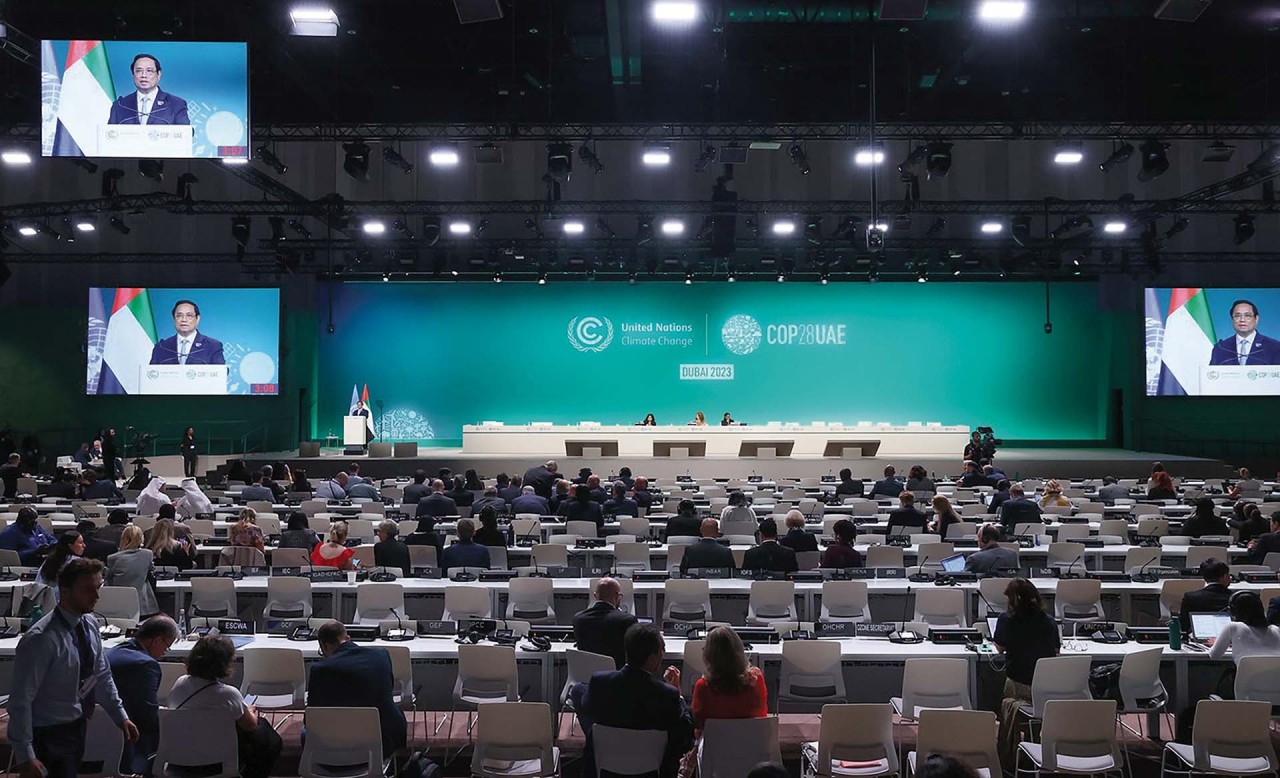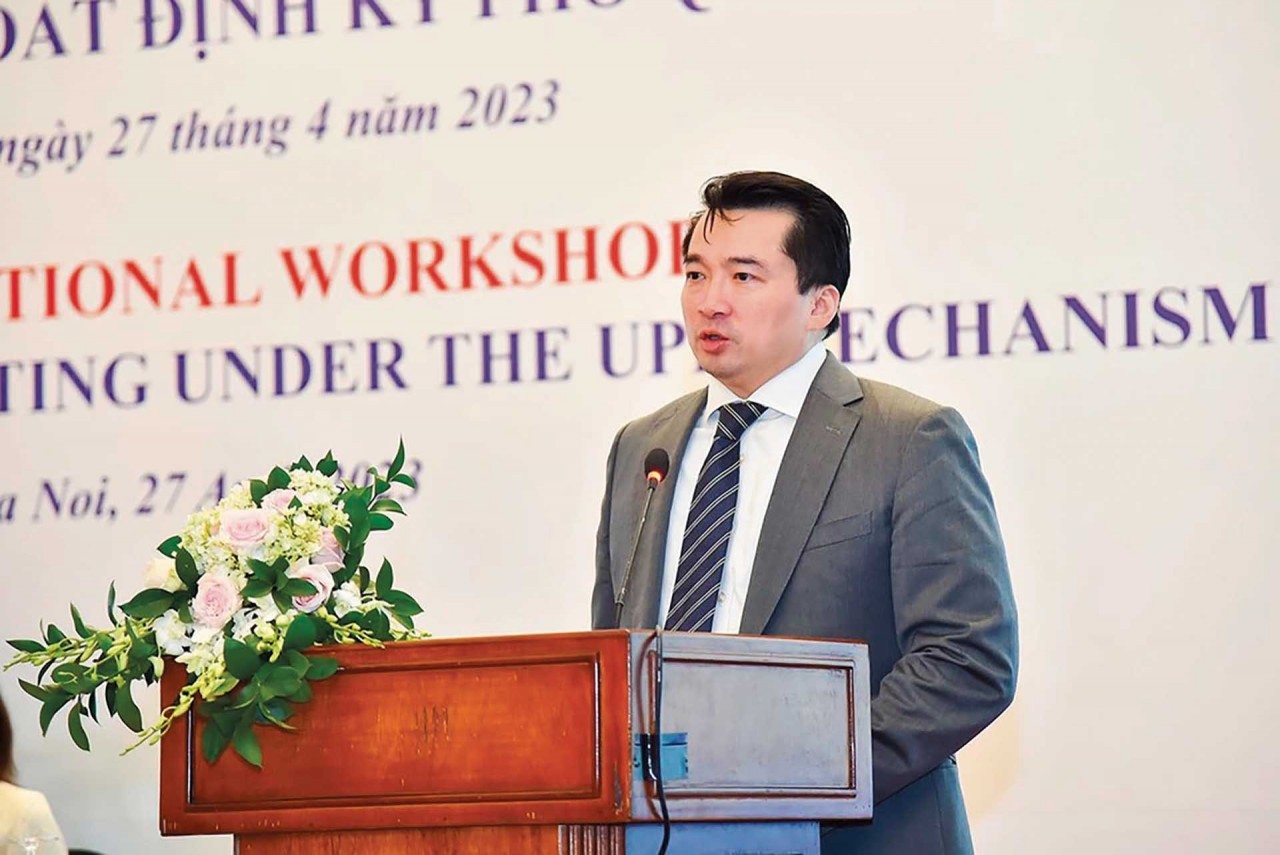
Viet Nam’s multilateral diplomacy: New missions, new mindset, new success
Latest
Multilateral diplomacy encounters an array of novel demands and responsibilities, notably the imperative for prompt transition and adjustment from the distinct challenges posed by the Covid-19 era. This requires not only keeping abreast of but also proactively anticipating the significant transformations occurring within the global and regional spheres, as well as timely and adept handling of major complexities emerging across regions and forums over the past two years.
Ensurance of peace and stability
Against that backdrop, multilateral diplomacy continues to strive, showcasing innovative thinking, ideas, and approaches. It is clearly proving itself as a pivotal diplomatic channel, making crucial and positive contributions to strengthening connections, intertwining interests, balancing foreign affairs’ conjuncture, and consolidating Vietnam’s position on the international stage. It harnesses external support and resources to sustain a peace and stability, as well as to enhance the country’s position in service of socio-economic development.
 |
| Prime Minister Pham Minh Chinh speaks at the World Climate Action Summit in Dubai on Devember 2. |
First, multilateral diplomacy has been implemented in a synchronous, comprehensive manner, especially at the high-level. Leaders of the Party and State have actively participated in various crucial multilateral conferences and forums at a global level, namely: the UN’s General Assembly High-level Week (September 2023), 28th UN Climate Change Conference (COP28 – December 2023), as well as regional forums like ASEAN summit and APEC Leaders’ meeting (2022-2023), Mekong River Commission summit (April 2023), Asia-Pacific Water summit (April 2022), and Francophonie summit (November 2022), and more.
Through these engagements, Vietnam strongly reaffirms its consistent stance on promoting multilateralism, respecting international law and the UN Charter, fostering dialogue, cooperation, unity, and action for peace, sustainable development, and effective responses to global challenges.
Second, multilateral diplomacy continues to contribute to the ensurance of peace and stability. In various multilateral forums, from the UN, ASEAN to the Non-Aligned Movement, the Francophonie, Conference on Interaction and Confidence Building Measures in Asia (CICA), Conference on Disarmament, Review Conference of the Parties to the Treaty on the Non-Proliferation of Nuclear Weapons, and so on, Viet Nam continues to actively promote cooperation and dialogue to build and consolidate trust, emphasizing adherence to basic principles of international law, especially regarding non-use of force, peaceful resolution of international disputes, respect for sovereignty, non-interference in internal affairs…
Countries around the world highly value our serious, responsible, balanced, and constructive stance, especially in addressing complex issues in multilateral forums regarding the situation in Ukraine, Iran, Myanmar, and between Israel and Palestine.
Looking back at this intricate context and the confrontations among involved parties, it becomes clearer that maintaining and implementing such an approach isn’t easy. Yet, it not only showcases Vietnam’s responsible role and image in multilateral forums but also helps balance, maintain, and develop cooperative relations with important partners. For instance, the elevation of the Vietnam-U.S. Comprehensive Strategic Partnership (September 2023) underscores this.
Substantial contributions to address major issues
Third, multilateral diplomacy continues to play its pioneering role. New and effective measures have been taken to mobilize resources, knowledge, and experience in service of the country’s development.
Through our active efforts, Viet Nam has became a member of the Just Energy Transition Partnership (JETP). This is the foundation of the mobilization of 15.5 billion USD to support Viet Nam’s just energy transition over the next 3-5 years (comparing to the total amount of 6.5 billion USD allocated to ministries, branches and localities on climate change adaptation efforts in the 2016-2020 period).
 |
| Director General, Department of International Organizations, Ministry of Foreign Affairs Pham Hai Anh. |
Multilateral diplomacy also made great contributions to the safeguard of water security, especially in the Mekong River basin, as well as the maintenance of cooperation within the Mekong sub-region, yielding significant economic benefits from the support of key partners such as the United States, China, South Korea, Japan, and India. The effective implementation of new-generation free trade agreements, notably CPTPP, EVFTA, RCEP proves to be a successful pathway, contributing to Vietnam’s emergence as a major trading nation.
Fourth, multilateral diplomacy has increasingly made substantial contributions to addressing and resolving numerous global issues, thereby further establishing Vietnam as a responsible member of the international community.
Vietnam’s capabilities and credibility are continuously affirmed through the assumption of crucial international positions, including at the UN Human Rights Council (2023-2025), World Heritage Committee (2023-2027), IAEA Board of Governors(2021-2023), UNESCO Executive Board (2021-2026), and the International Law Commission (2023-2027).
Vietnam continues to boost personnel deployment in UN peacekeeping operations across African nations, promote ASEAN’s centrality in regional matters. Additionally, Vietnam has introduced new proposals, approaches and contributions to global issues, such as participating in the core group to put forward a resolution requesting the International Court of Justice (ICJ) to define the obligations of states to combat climate change, presenting a joint statement on the significance of the UN Convention on the Law of the Sea (1982) on its 40th anniversary, proposing and joining core groups focusing on resolutions on the ensurance of human rights at the UN Human Rights Council.
Amidst the world facing shared challenges, achieving the outlined objectives in the upcoming period will undoubtedly present several hurdles. In the coming time, to deliver effective contributions to the common tasks of the foreign affairs sectors, multilateral diplomacy will thoroughly grasp and actively implement the Central Committee’s Directive No. 25/CT-TW dated August 18, 2018 on promoting and enhancing multilateral diplomacy by 2030, and the Politburo’s Resolution No. 34/NQ-TW dated January 1, 2023 on foreign affairs, as well as consistently follow the foreign policy of independence, self-reliance, an active and responsible member of the international community, uphold multilateralism, international law, and the role of multilateral, global, and regional institutions.
Vietnamese multilateral diplomacy will strive to contribute on the successful execution of strategic tasks of bolstering national development and protection, further contributing to the comprehensive, modern Vietnamese diplomacy, deeply rooted in the unique “Vietnamese bamboo” identity.












